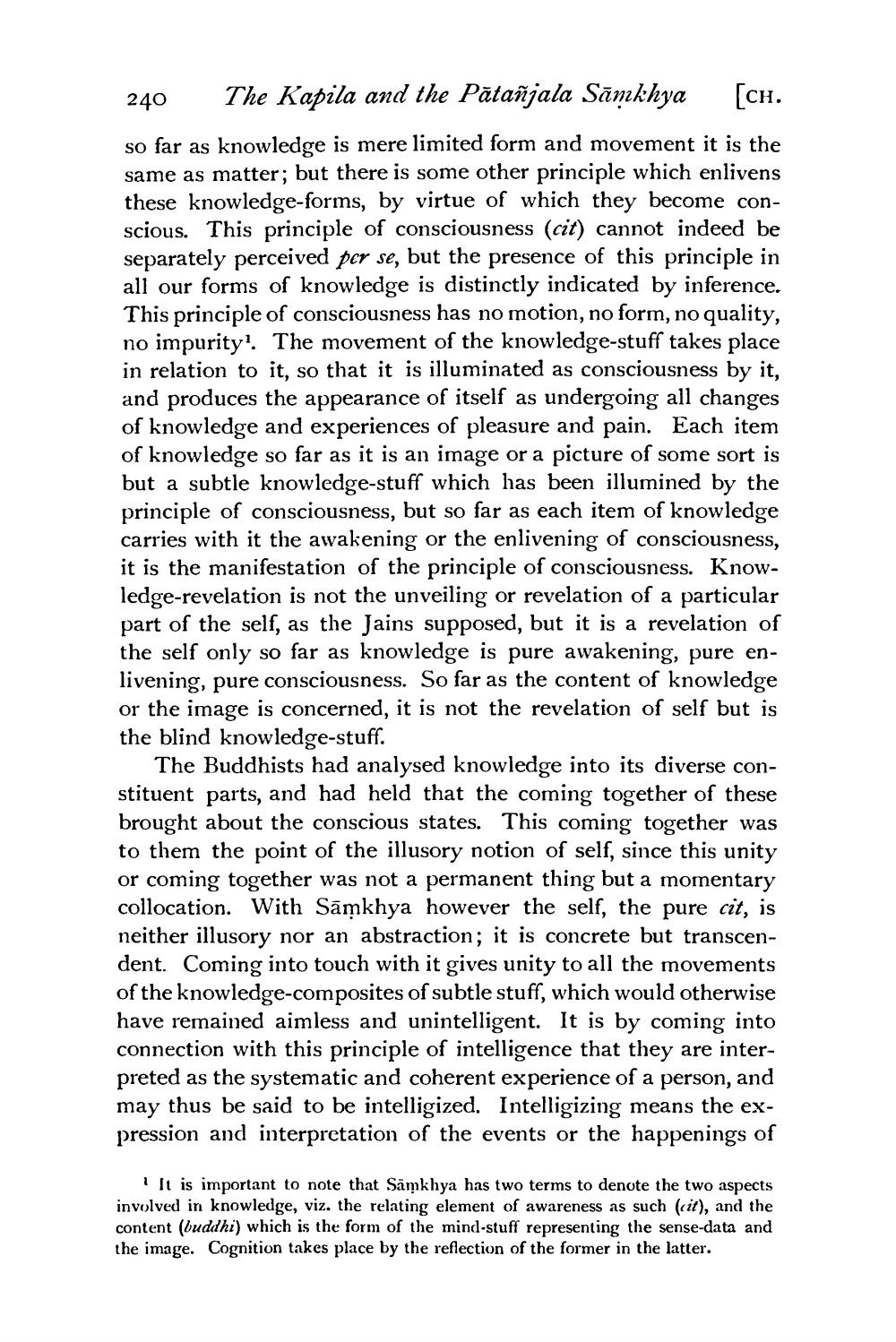________________
240
The Kapila and the Patanjala Samkhya
[CH.
so far as knowledge is mere limited form and movement it is the same as matter; but there is some other principle which enlivens these knowledge-forms, by virtue of which they become conscious. This principle of consciousness (cit) cannot indeed be separately perceived per se, but the presence of this principle in all our forms of knowledge is distinctly indicated by inference. This principle of consciousness has no motion, no form, no quality, no impurity'. The movement of the knowledge-stuff takes place in relation to it, so that it is illuminated as consciousness by it, and produces the appearance of itself as undergoing all changes of knowledge and experiences of pleasure and pain. Each item of knowledge so far as it is an image or a picture of some sort is but a subtle knowledge-stuff which has been illumined by the principle of consciousness, but so far as each item of knowledge carries with it the awakening or the enlivening of consciousness, it is the manifestation of the principle of consciousness. Knowledge-revelation is not the unveiling or revelation of a particular part of the self, as the Jains supposed, but it is a revelation of the self only so far as knowledge is pure awakening, pure enlivening, pure consciousness. So far as the content of knowledge or the image is concerned, it is not the revelation of self but is the blind knowledge-stuff.
The Buddhists had analysed knowledge into its diverse constituent parts, and had held that the coming together of these brought about the conscious states. This coming together was to them the point of the illusory notion of self, since this unity or coming together was not a permanent thing but a momentary collocation. With Samkhya however the self, the pure cit, is neither illusory nor an abstraction; it is concrete but transcendent. Coming into touch with it gives unity to all the movements of the knowledge-composites of subtle stuff, which would otherwise have remained aimless and unintelligent. It is by coming into connection with this principle of intelligence that they are interpreted as the systematic and coherent experience of a person, and may thus be said to be intelligized. Intelligizing means the expression and interpretation of the events or the happenings of
It is important to note that Samkhya has two terms to denote the two aspects involved in knowledge, viz. the relating element of awareness as such (it), and the content (buddhi) which is the form of the mind-stuff representing the sense-data and the image. Cognition takes place by the reflection of the former in the latter.




